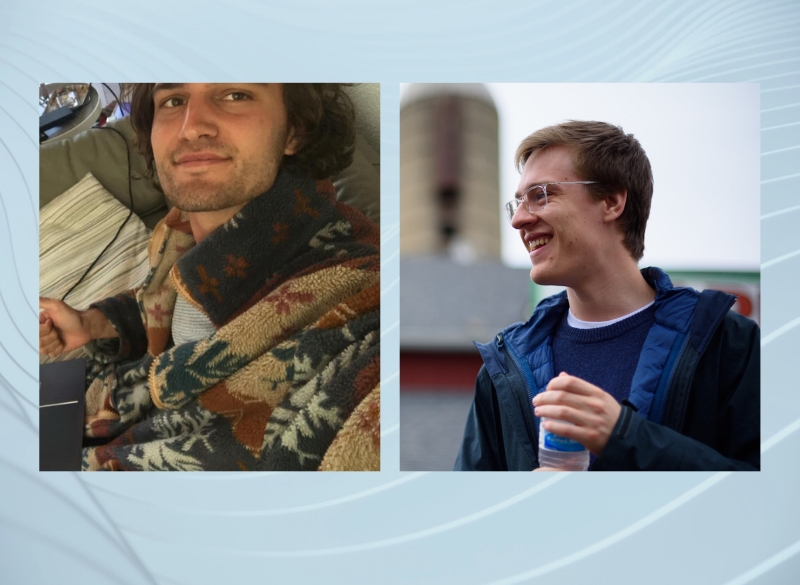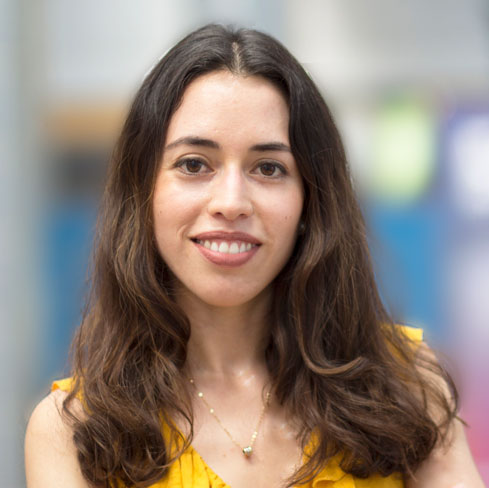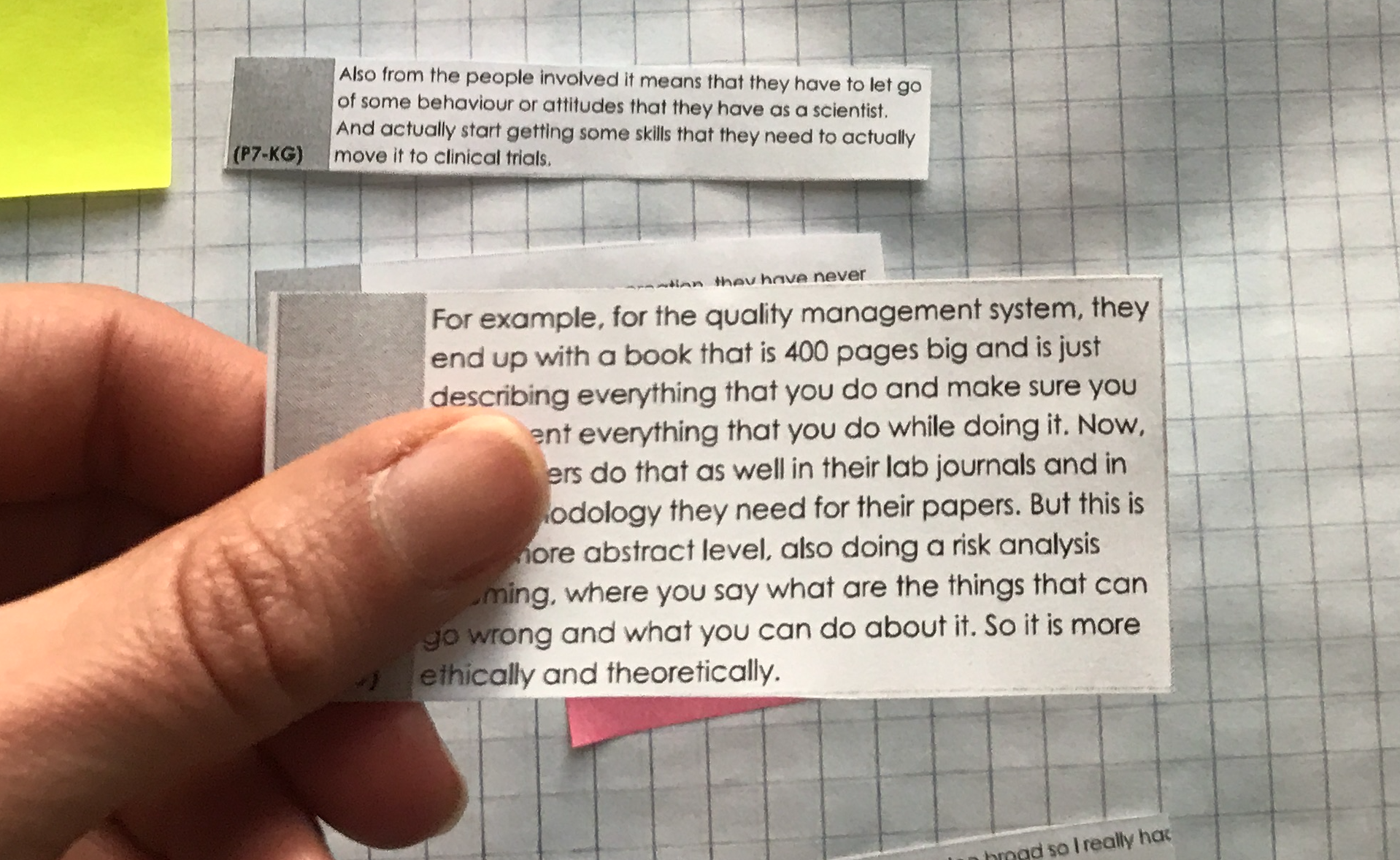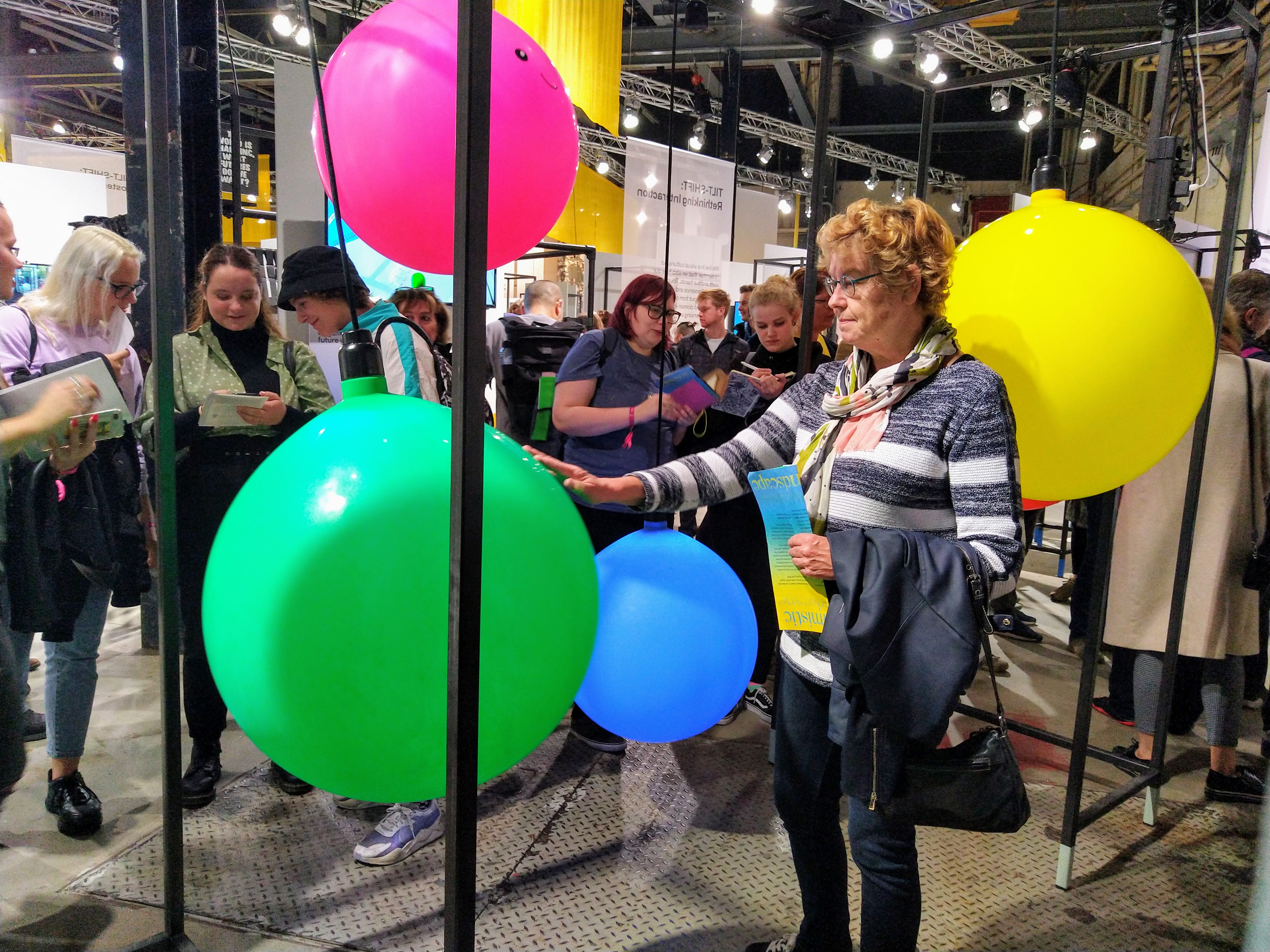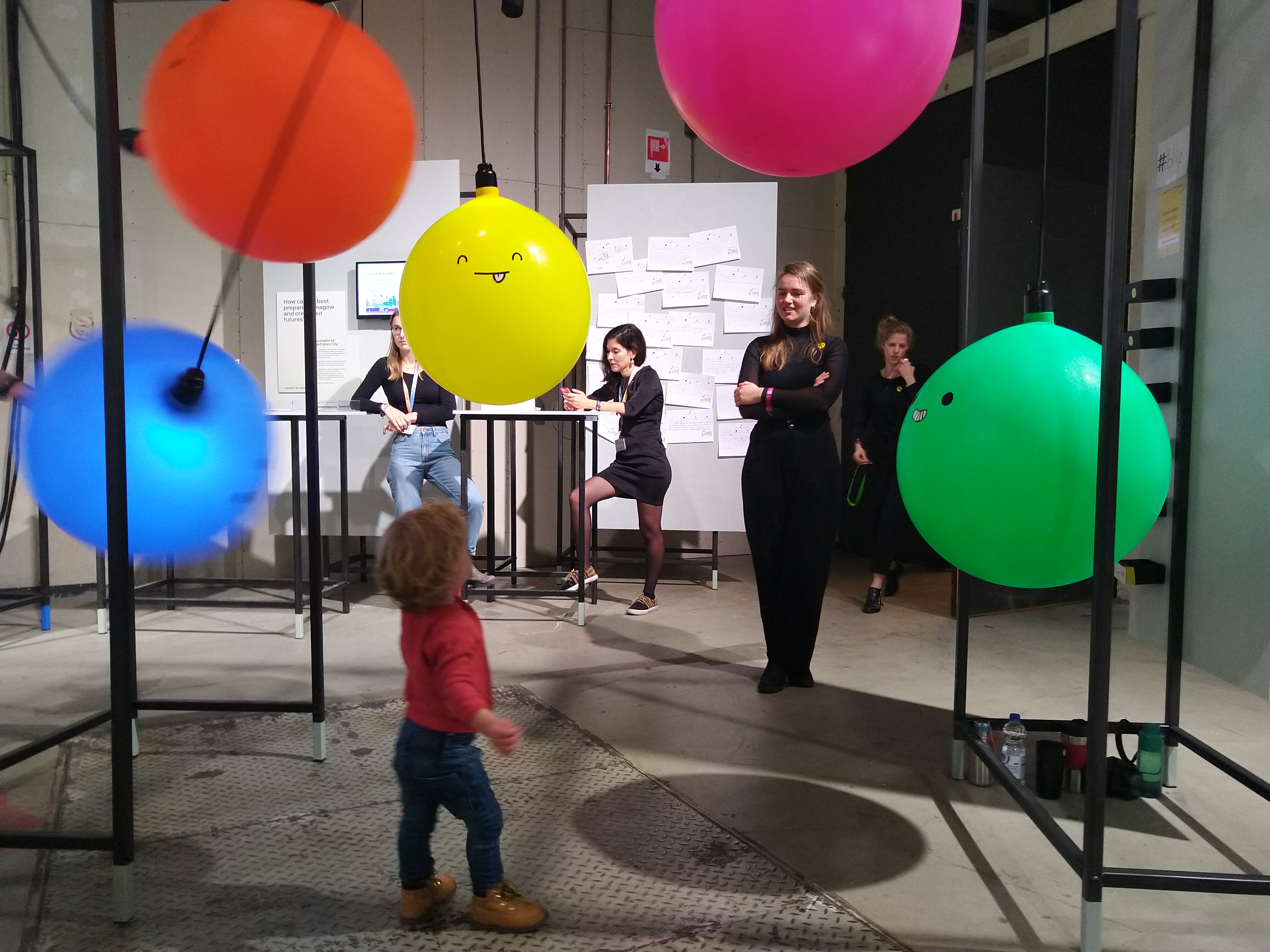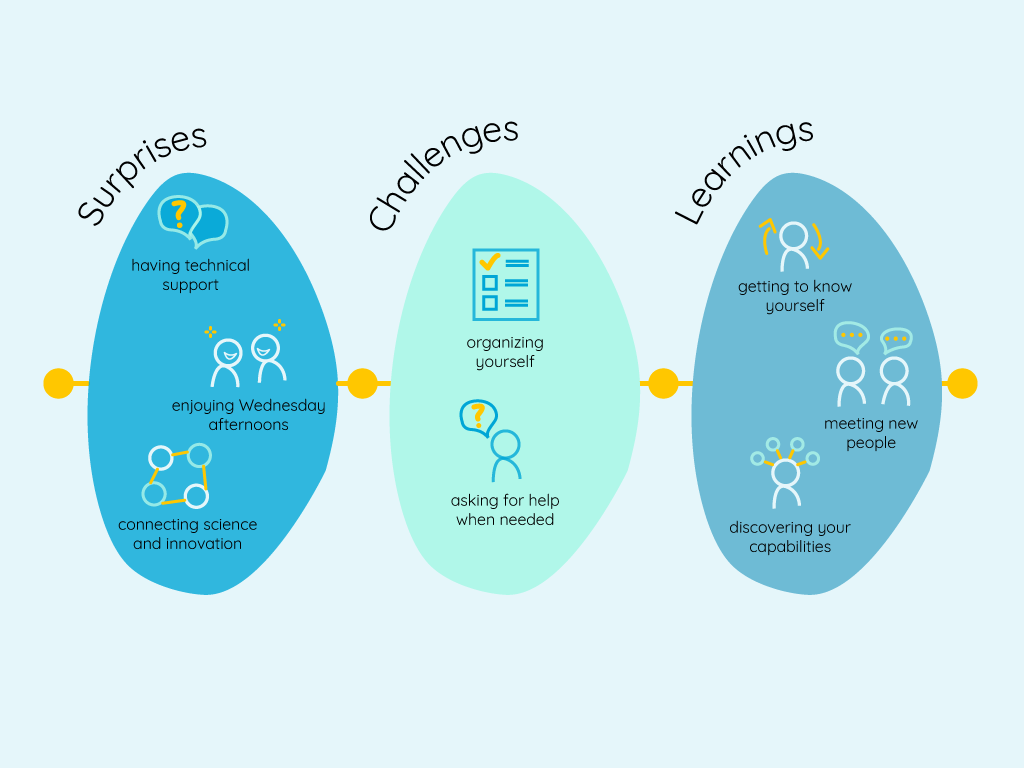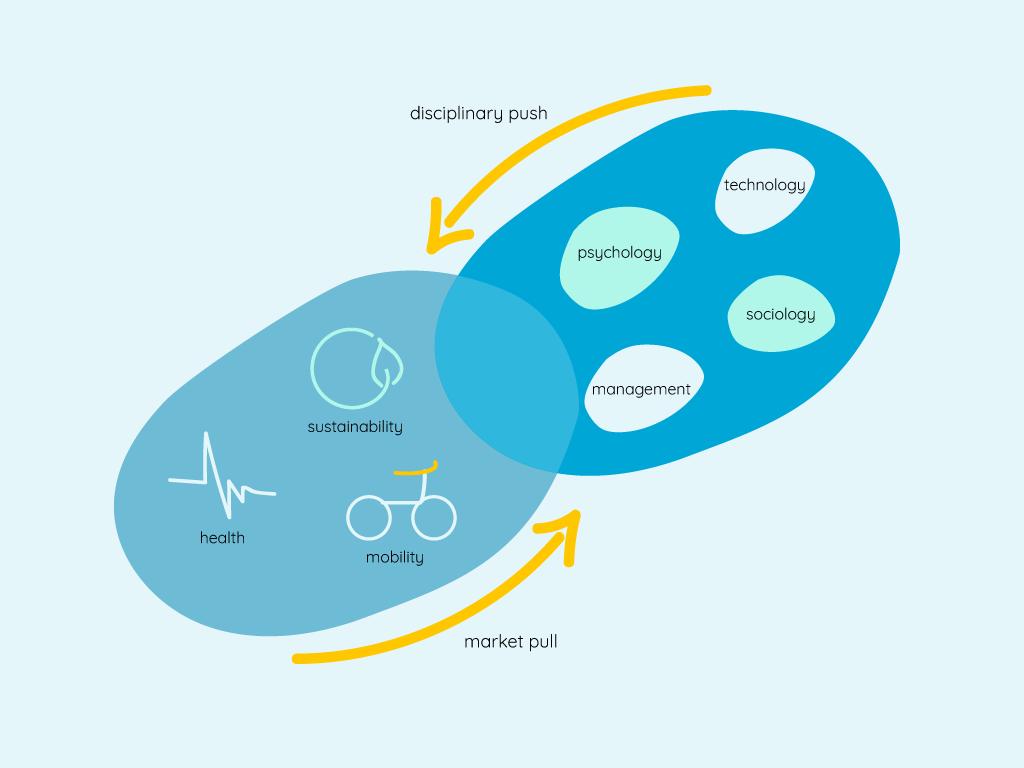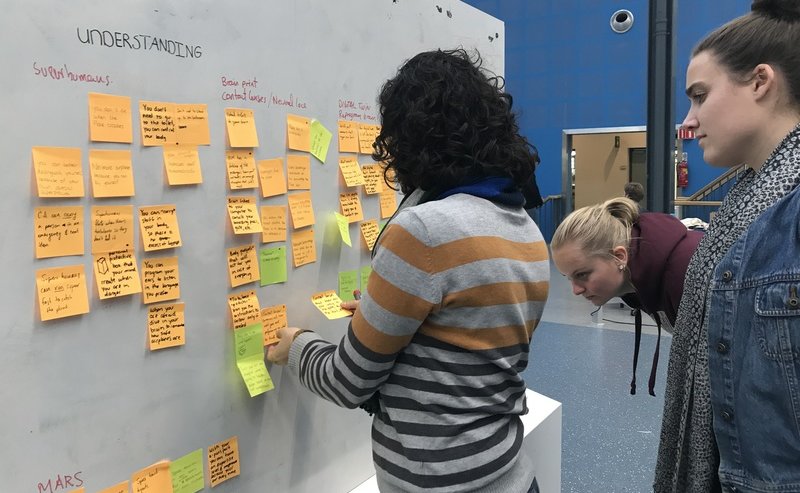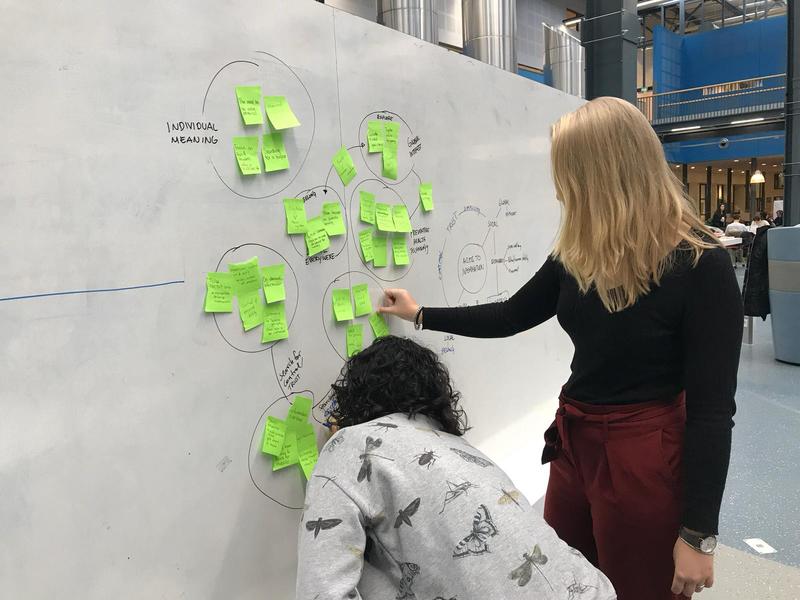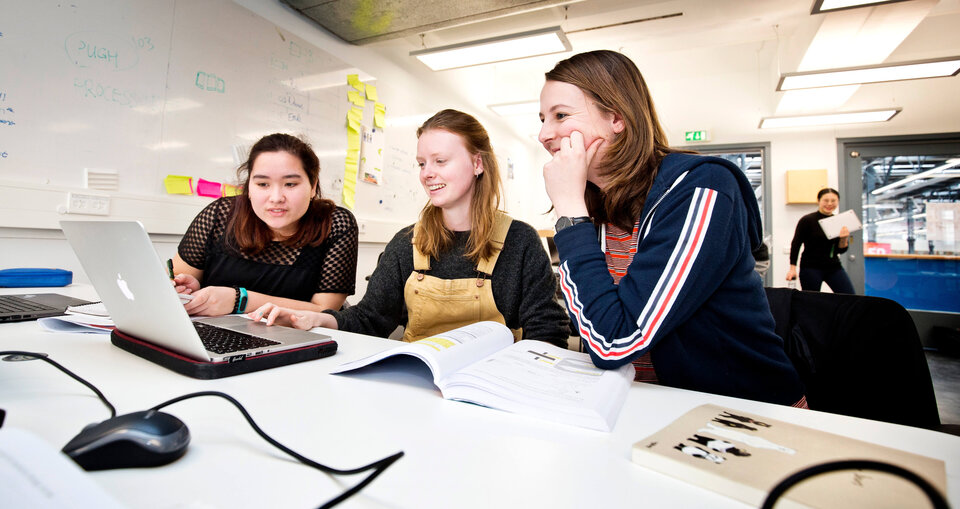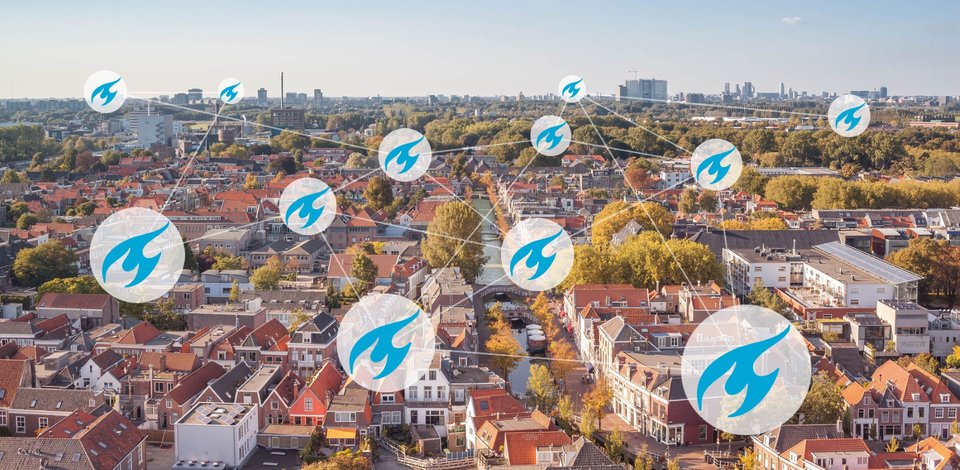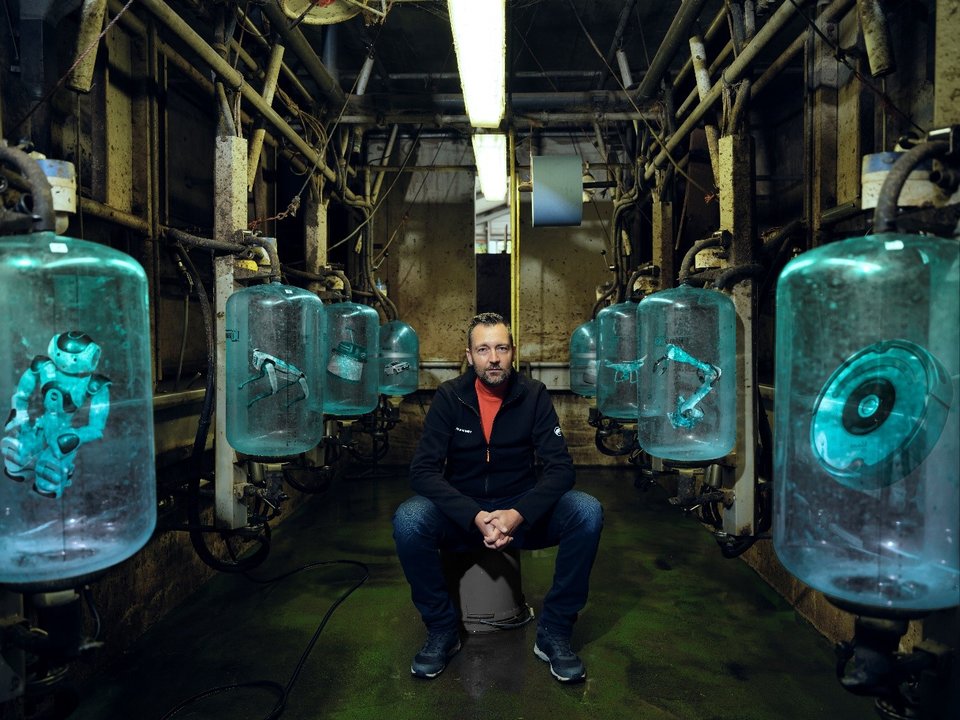Regina Morán's experiences in Delft
INTERNATIONAL STUDENTS SHARE THEIR EXPERIENCES AT IDE
Regina's articles
Regina's most recent article:
Writing a paper and getting it published
Regina Morán | July 2020
During the master, you will write papers in some courses, and you can decide to present or try to publish your work. For this article, I will share my own experience in publishing a paper.
I will explain what the project is about, where it was presented, what the biggest challenge was, and the learnings. I have also interviewed another student who wrote a paper as part of the research elective.
-
Publishing a paper
I realised my research as part of the research elective (see electives overview). The research elective consists of realising a research project; for instance, it could be in collaboration with an existing research in the faculty. Besides, you can select the working hours you will assign to the project (e.g. 3, 6, 7, 8, or 9 EC). For my project, I was coached by Dr. ir. Marina Bos-de Vos. and together we defined I will assign the hours needed to receive 9 EC.
What was my project about?
It is about collaboration in healthcare. I studied eight open innovation initiatives in healthcare in the Netherlands to explore how they are working to contribute to a sustainable healthcare system.
Where did I publish my work?
Since, the beginning we (my coach and I) looked for opportunities, and we found out the 6th European Conference on Design4Health would take place in July 2020. Although the conference got cancelled due to COVID-19, we still managed to publish the paper (see full paper here). Timewise it was perfect because I started my project in September, so I had time to apply.
What was my biggest challenge to publish?
The theme I was exploring is a bit complex, and I wanted to include a lot of information (see Figure 1). When I realised there was a word limit for the paper, I had to cut out a significant percentage of the paper. It was challenging for me to scope down the study and talk only about concrete findings.
Figure 1. Analysis session
What did I learn from this experience?My most significant learning was to have a clear goal and scope down the project; otherwise, you will never finish. Besides, a good advice I got from my coach was to focus on what is really interesting and what are the mechanisms that are causing this. So my advice would be, that if you are doing research and writing a paper, you need to know what you are adding to the existing literature and why your contribution is relevant.
In the end, writing down a paper is a learning exercise, it is an excellent opportunity to learn more a specific topic of your interest. Besides, by publishing, you contribute to existing research, and you are presenting yourself as an expert on a specific topic.
Writing a paper
I continue with the story of Jesal Shah; she is currently studying the master of Strategic Product Design.
What was your project about?
The project was under the domain of design-led transitions. It was done as part of the research elective, under the guidance of Dr. Rebecca Price. It aimed at understanding how design can be applied to transverse and connect different perspectives in order to achieve sustainable transitions. Using the recent demonetisation effort in India as a case study, we reflected on how design could have been applied to improve the transition, as well as to anticipate and alleviate social losses encountered during socio-technical transitions.
What was your biggest challenge to publish?
Since the paper has not been submitted yet, the challenge would be to find the appropriate platform, journal, or conference to present the paper. We have put up a pre-print working paper on ResearchGate to gain some interest and feedback from the research community (see pre-print here).
What did you learn from this experience?
That it is vital to define the goal and scope of the research explicitly; it helps to stay on point. Although my process was very organic, early decisions (e.g. which case study and point of view to pursue) helped in guiding the process. Having a well-defined method of organising the materials you have read is key. Otherwise, it is challenging to keep track of literature (the content, its relevance, and important aspects) and find relevant sources or arguments while you are writing your paper. Lastly, pursuing the project helped me find my writing style (both language and process-wise) as a novice researcher. I write a lengthy first draft to ensure I have captured all my ideas and arguments. I build it for redundancy since it is much easier to remove things rather than add later on.
More articles by Regina
Presenting at the Dutch Design Week
Regina Morán | July 2020
During the master, you will design different solutions for existing challenges. Hence, you may have the chance to present your work in different events such as the Dutch Design Week. For this article, I interviewed one student from the master Design for Interaction. She presented her work in the 2019 edition of the Dutch Design Week in Eindhoven. I will explain what the project is about, what the biggest challenge was, and the learnings she took from it.
-
This interview was with Ileana Díaz Couder Breceda. She shares her experience of presenting her work in the 2019 edition of the Dutch Design Week in Eindhoven; in collaboration with Hannah Goss and Tirza Izelaar. The three of them are students of the master Design for Interaction.
What was your project about?
The project is called Blip. It is an installation that consists of eight hanging balls each with their own personality that can be explored through bodily movement (see Figure 1). Each ball has its own colour and face which corresponds to a musical note. When a person interacts and moves one ball, a musical note begins to play, and the ball begins to light up. The musical note and light loop each time the ball is moved (click here to see a video). As the interaction with the balls increase, the experience turns to be more immersive. When the balls are still, they pulse slowly and move in the wind to attract visitors. Familiarity, connecting, nostalgia, surprise, creation, reflection, beauty, and simplicity are our ingredients for momentary happiness.
Figure 1. Blip; installation at the Dutch Design Week 2019
The reason behind this installation is that people increasingly are consumed by their thoughts, worries and tasks. Without realising it, they are moving through the day without taking a break to enjoy or reflect on what brings them happiness. Blip seduces people in a public setting to practice momentary happiness and ideally improve their subjective wellbeing by being fully engaged and present in a moment with the installation.
What was your biggest challenge to present your work?
The project was the deliverable of the course called "Interactive Technology Design" from the MSc Design for Interaction. For the deliverable, we had one balloon fully working and we "wizarded" the rest. One of the challenges was to make it a stand-alone installation, robust enough for Dutch-Design-Week proof. Hence, we had to do some extra work refining the codes, hardwiring, making a mechanism to make sure the balloons were airtight, and of course to stay on top of all the requirements for the exhibition.
What did you learn from this experience?
I learned to trust the design process, or at least to go with it. Also, I learned (and enjoyed) how good teamwork works; each of my teammates added different ingredients to the table that were visible at the end.
This case is an example of how you can take your projects one step further; not only like a deliverable in a course but also as a project you can present to more people. An experience like this can demonstrate the pitfalls and successes of the project. Besides, it is an enriching experience as a professional and as a person because you face new challenges that can provide you with a learning experience.
SPD Courses in Brief: an overview of what you’ll study
Regina Morán | May 2020
This article will provide you with an overview of the courses you will have as an SPD master student. The information is provided based on my experience as a student who started in autumn, however, it is also possible to start in the spring semester. To see the full master programme, visit SPD Programme. Besides, you can see a detailed description of each course in the Study Guide.
Courses in (year 1)
During the first year, the courses provide you with a set of knowledge, skills and tools. Hence, you will have courses that will provide you with theoretical and practical knowledge. I perceive that during the fall semester, the purpose is to provide you with the general skills and knowledge you need as a strategic designer.
-
For instance, by learning design methods on Design Theory and Methodology and getting knowledge of business models on New Products Economics. While in the spring semester, you are guided and informed to shape your own path. For example, in Strategic Value of Design you learn about the different paths as Strategic Designer to build your own ‘designer identity’, with Manage your Master you define your master path and at SPD Media you learn a communication skill to convey a clear message. Besides, during the whole year, you are able to learn new skills at IDE Academy by attending 14 different workshops (e.g. observation, future scenarios, photography).
The main courses during the first year are Design Strategy Project (fall semester) and SPD Research (spring semester). In the following lines, I will explain those courses.
Design Strategy Project (fall semester)
This course is project-based, you will work with an organization as a client. For example, in previous years, students have worked with KLM, Red-Cross, Ford, among others. You will have the opportunity to work with a different organization each quarter. Every project is developed by a team of around 4 students guided by 2 coaches and the client. The project depends on the organization’s needs, it could vary from developing new innovations, creating a new business model, etc. For example, my team and I worked with KLM and developed a data-driven strategy for passengers during the flight. Besides, we had great lectures about a huge variety of topics (e.g. artificial intelligence, service design).
SPD Research (spring semester)
The aim of this course is to teach students how to do advanced scientific research. Hence, it is a theoretical and practical course. It is formed by three different modules, qualitative research, quantitative research and customer research methods. For the three modules, you will have lectures and for the qualitative and quantitative modules, you will also have tutorials where you put the theory into practice. Besides, you will work in a team (around 3 people) on a research project, it could be with a qualitative or quantitative focus. You will have the opportunity to select from a list of topics one of your interest to develop your research project. My team and I worked on ‘Designing new business models for multi-stakeholder collaborations’. We realized qualitative research on the health sector where we interviewed health professionals.
Electives (3rd semester):
During this semester, you are able to select your courses. The faculty offers around 40-50 options. Besides, you can select courses from other faculties or other universities inside or outside the Netherlands. There is also the possibility to realize an internship for 15 EC. Another possibility is to select the Medisign specialization, where you need to take at least 9 EC worth of Medisign related electives. For more information you can visit the Medisign webpage. In my case, I selected Health Psychology plus Contextmapping and Experience and Persuasion on health-related topics. Another possibility is to select an annotation on Entrepreneurship where you will need to complete 15 EC from elective courses or an annotation on Sustainability where you will need to complete 10 EC from elective courses.
Graduation project (4th semester):
For the graduation project, you need to complete 30 EC. You can decide to do your graduation project related to an ongoing research project at the faculty or within an organization (visit graduation opportunities). Ideally, you will select a project of your interest. You will be guided by a chair and a mentor. If the project you have selected doesn’t have a chair and a mentor assigned, you will need to look for them. Talk to different professors and ask for advice, it is important that you find the right people that will guide you and support you. For references on graduation projects, watch this video.
To summarize, the programme for SPD master includes a balance of theory and practice to acquire new knowledge, skills and tools. During the first year, you will get basic knowledge and develop new skills. In the second year, you are free to design your own path and focus on what you find more interesting.
Surprises, challenges and learnings at IDE
Regina Morán | April 2020
For this article, I did a small questionnaire among students at IDE. I collected the answers from students of the three masters at IDE. The aim of this article is to provide you with some tips based on our own experience as students at TU Delft. In the following paragraphs, I share the ones I considered the most interesting and useful. Students answered three main questions; what has been the most surprising aspect of the faculty, what has been the most challenging moment during their studies, and which has been their main learning during their master. Besides, I also add my personal opinion based on my experience.
-
What has been the most surprising aspect of the faculty?
I would say, for me, the most surprising thing has been the Delft Design Labs. Our faculty has 10 different labs related to healthcare, cities, museums, entrepreneurship, food, among others. The labs are collaborations between different stakeholders, connecting design science and innovation. Recently, I interviewed a master student who is part of the Critical Alarms Lab, the interview was really interesting. She told me the lab was mentioned at the New York Times last July! You can take a look at the article here.
One student from SPD answered ‘the student support at the university [referring to the service desk]’. The people at the service desk are quite helpful. They can help you to book a room; for instance, if you have a team session or a workshop. Also, you can ask for some equipment like a video camera or voice recorder for your projects. Another student referred to the Wednesdays at ID Kafee. Every Wednesday, you can have some beers with your friends at the student bar, it is a nice place to meet new people, talk to some classmates or even professors. Don’t miss the chance to enjoy a nice evening at ID Kafee!
What has been the most challenging moment during your master?
If you come from a different country, it is most likely, that the way of working and the system in the Netherlands is slightly different from your home country. A student from IPD mentioned that it is challenging to adapt to the ‘way of doing things here’. For instance, being self-disciplined without having someone telling you to get things done. You need to organize yourself to be able to manage the workload. Another one could be, the grading system, which might be different from your home country. You might not be aware of those things at the beginning and for me, that was a bit challenging, and sometimes stressful. Therefore, I have some tips that can help you cope with stress.
Of course, the first thing is to plan in advance. However, it is sometimes challenging to keep the rhythm. If you are struggling with the workload, talk to someone. In my case, I have always discussed with my teammates, that is the good part of working with teams. You can support each other and make things work for everyone. You can also talk to your friends, coaches or professors. Besides, the faculty has Academic counsellors, that you can talk to (everything that you discuss with them is confidential) and an e-health webpage with some practical tips.
Which has been your main learning during the master?
Of course, we all have learned valuable things in our masters. However, almost all the respondents agreed that some of the biggest learnings had been personal. An IPD student mentioned ‘I have learned a lot about myself’. You get to know yourself and to be yourself around others. You meet people that accept you by who you are. You discover how capable you are and learn to detect those things or activities that you enjoy the most and that gives you energy. I have learned that is up to me how much I enjoy my master and how much I learn. To have the best experience at TU Delft, I suggest you practice a sport, meet people during Wednesdays, make new friends in the faculty, and all these will make you feel at home!
The master goes by so fast, so a final tip from a DfI student, ‘learn as much as you can, in the end, the biggest benefits are for you’.
This is Design Doing
Regina Morán | January 2020
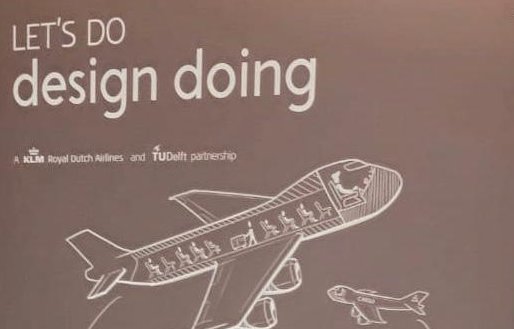
During the first year of my master, I was surprised that in the MSc courses we were already working for companies. One of my first projects was for KLM. Then, I learned about the collaboration between TU Delft and KLM called Design Doing. The aim is to connect employees, researchers and students fostering a culture of design throughout the company. As a student, it is a great opportunity to see the innovation possibilities to design and build design-driven organizations!
-
In the project I did for KLM, I worked with three classmates. The assignment was to design a solution to improve the experience of passengers during the flight. We worked during one quarter on the project and had the opportunity to visit the Crew Center and interview some Cabin Attendants. Then, we did the validation of our project on a real plane at TU Delft! Finally, we presented our results at the KLM Headquarters and our project was selected as the best project by the jury from KLM.
Later, I found out that we were not the only ones working for KLM. The collaboration between TU Delft and KLM involves employees, researchers and students, it is called Design Doing. The aim is to deliver knowledge to KLM and have a long-lasting impact on their customers and employees by fostering a culture of design throughout the company. At the same time, TU Delft is able to research and educate students in the KLM practice to learn about the impact of design. This collaboration is present in multiple ways; for example, there is a design elective called X-Lab and there are graduation and internship opportunities you can get to know during the ‘meet and match’ events. Also, some IDE Alumni have being hired at KLM.
Currently, I am part of the Design Doing collaboration because I am working as a student assistant in the Design Doing team, formed by KLM’ers and TU Delft employees. I have had the opportunity to experience and learned about the value of Design Doing. Me and other student assistants were present at the celebration of KLM for their 100 anniversary and at the Dutch Design Week (see Image 1) in a stand where we invited people to design the future of flying. Therefore, Design Doing has external recognition and also has an impact outside TU Delft and KLM. I also helped organize a workshop for students (in the MSc course IDE Academy) where around 60 students went to the KLM Headquarters for a design sprint on three different challenges.
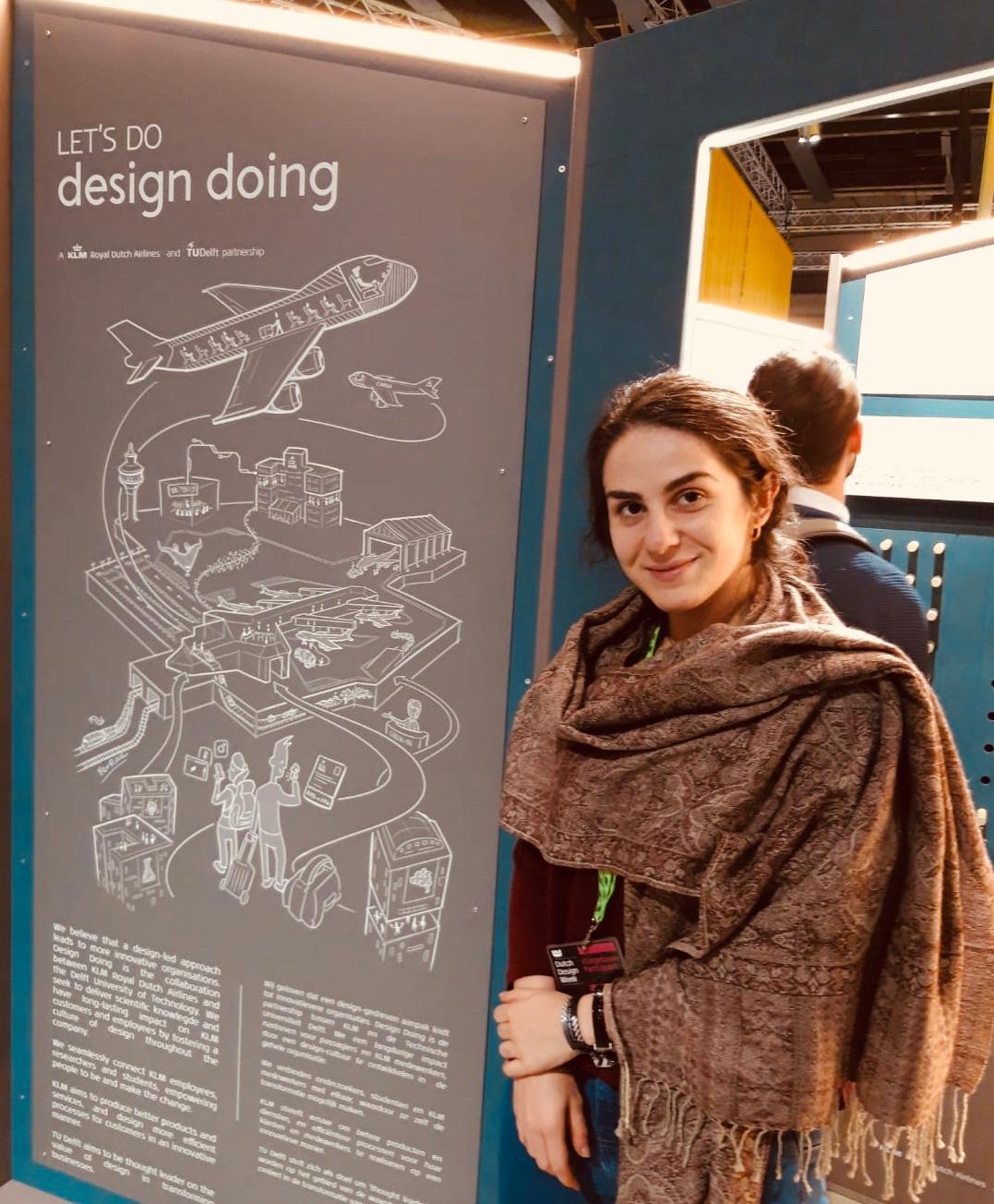
Giulia (student assistant for X-lab) at the Dutch Design Week I am happy to see how design is present in organizations and to see what the value of designers could be in a big organization as KLM; for example, by improving the experience of passengers or suggesting how to transform KLM into a sustainable company. As a student, it is a great opportunity to see the innovation possibilities to design and build design-driven organizations!
Design Doing contact
Why choose the Medisign Specialization?
Regina Morán | November 2019
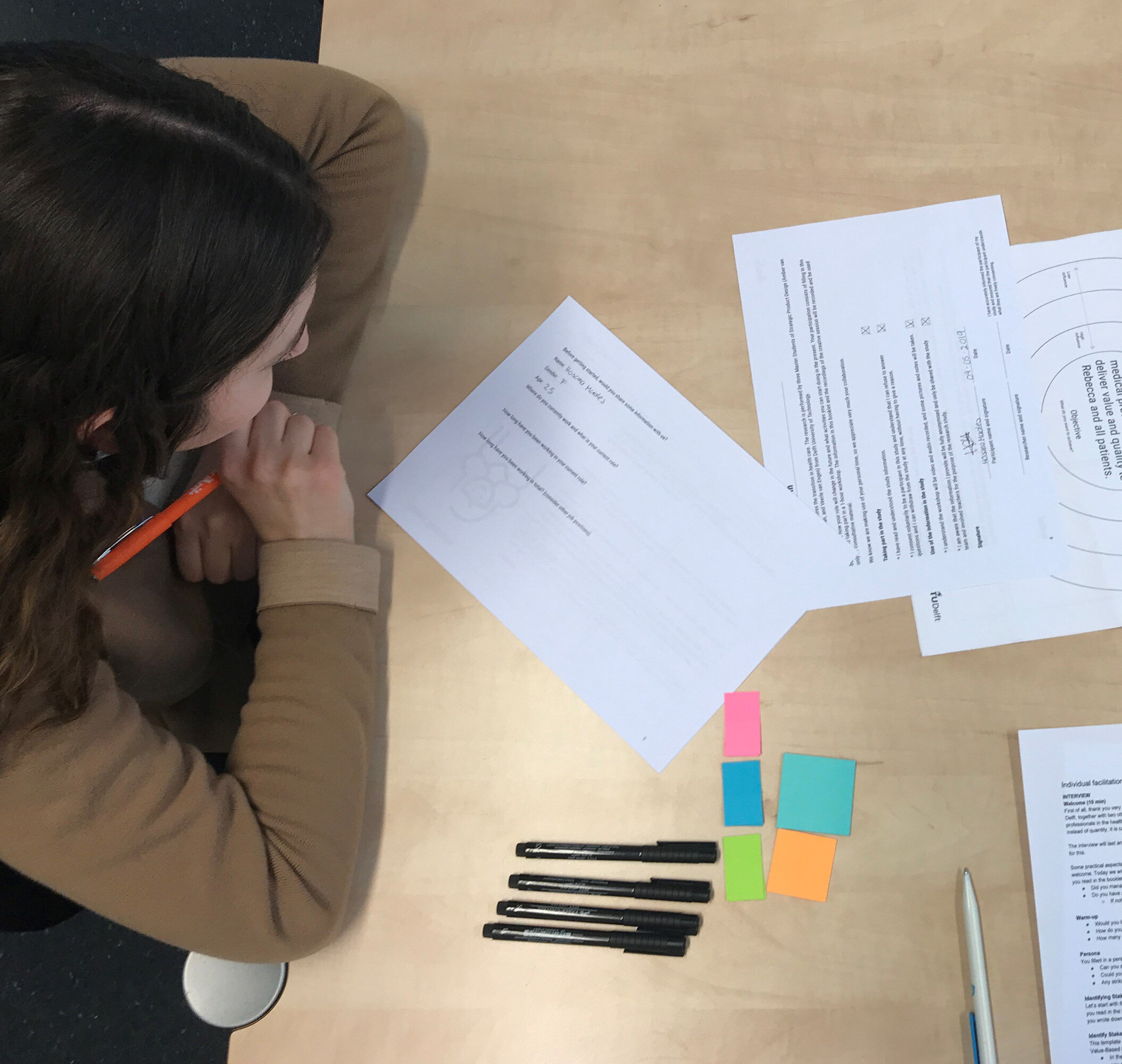
The Medisign Specialization is meant to form students capable of designing new products and services that answer to current needs and are also future-proof. To be part of the Medisign Specialization, you should be enrolled in one of the masters of the faculty; Integrated Product Design (IPD), Design for Interaction (DfI) or Strategic Product Design (SPD). Among the possibilities, TU Delft has three Design Labs related to healthcare; CardioLab, Critical Alarms Lab and End of Life. Each Design Lab works with different organizations and it is a good opportunity to get deeper into a topic of your preference through a research project. Design in healthcare is expanding worldwide, by choosing the Medisign Specialization you can contribute to improve the healthcare sector.
-
The healthcare sector is facing many challenges nowadays, due to global development and societal changes (see Medisign Brochure). Professionals with a creative background are needed to design the future of healthcare. The Medisign Specialization is meant to form students capable of designing new products and services that answer to current needs and are also future-proof. It is designed for master students from Integrated Product Design (IPD), Design for Interaction (DfI) and Strategic Product Design (SPD)* that would like to make a difference in the healthcare sector.
To be part of the Medisign Specialization, you should be enrolled in one of the masters previously mentioned. You do not need to apply for the specialization on advance, you may choose to do it when you have already begun with your studies. One of your projects during your first year of master should be related to healthcare. For example, I am currently doing a project on Value-Based Healthcare in the course of SPD Research (see Picture 1). Then, 9 ECTS of your electives should be focussed on medisign courses; there are different options, like Capita Selecta Medisign, Complex Ergonomics for Complex Systems, Biomechanics, among others. Finally, your graduation project should also be related to healthcare, you can see some projects in the Medisign webpage.
Interviewing a medisign professional If you are willing to learn more, there are some options beyond the courses. TU Delft has three Design Labs related to healthcare. The three of them work with different organizations and it is a good opportunity to get deeper into a topic of your preference through a research project. The first is the CardioLab, they work collaboratively to explore how smart technologies can reduce cardiovascular diseases. The second is the Critical Alarms Lab (CAL), which focusses on sound in healthcare to shape the future of alarms and soundscapes. And the third one is the End of Life Lab which explores how design could help improve the quality of life in its last stage. If you want to be part of any of these Labs you can contact them to define how could you contribute to the project.
Design in healthcare is expanding worldwide. If you wonder about future possibilities after graduation, here are some examples. In the Netherlands, a well-known company were designers are collaborating is Philips, you can take a look at Philips Design. For smaller organizations, you can check MEDD or Vilans, where some IDE alumni have worked. There are also opportunities in other countries in Europe, some examples are Scope in Finland and The Care Lab in Spain. In case that, there is nothing related to Medisign in your country and you wonder if it would be worth it, I bet it will. You can always take the lead and contribute to improve the healthcare sector.
I final tip would be to talk to people and solve your doubts to enrol in the Medisign Specialization when you have started your MSc in Delft. More information is shared during the Manage Your Master days, at the beginning of the first and the second semester. Also, you can join the Medisign Community on Facebook.
Honours Programme
Regina Morán | April 2019
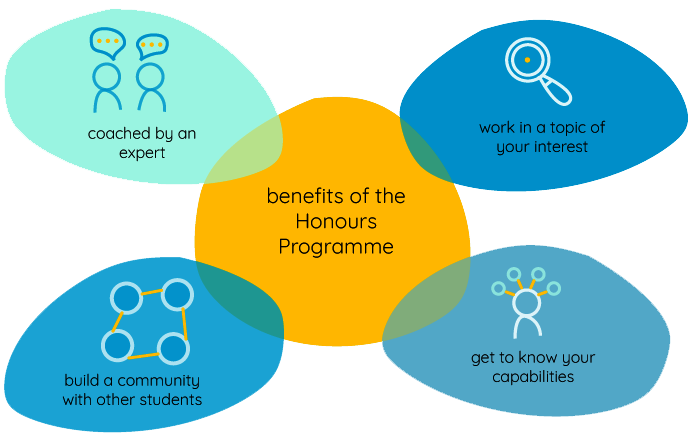
The Honours Programme gives you the opportunity to focus on a project of your interest and to take an extra challenge beyond the regular courses. It is an opportunity to see your own capabilities and what you need to improve. You get to manage your time and your workload to move forward with your project. You work with a coach that guides you during the project and you get to know other students that are part of the programme. It is an opportunity to put in an extra effort and challenge yourself.
-
Before coming to the Netherlands to study my master, I worked at different companies. My last job was supposed to be “cool”; a small innovation consultancy with young people, flexible schedule and our office located in WeWork (co-working space). Despite all those benefits, my colleagues were always late to every meeting, never delivered on time and with few hours of sleep daily. I wondered why they didn’t pay attention to their lives?
When I arrived at TU Delft, during the first days of the master, we had some Manage your Master days. There are three days at the beginning of semester 1 and 2, to get to know all the possibilities we have in the faculty. In one of those lectures, I heard about the Honours Programme at the university. In the programme, you get the possibility to work on a topic of your choice. In my case, I knew right away I wanted to do a project focused on well-being in organizations.
I knew the Honours Programme was about doing an extra project beyond the regular courses, but I wanted to know more. I joined the meeting announced during the Manage your Master days and I read the material available on the web page. After the session, I decided to enrol. I went to a coaching session to receive some guidance for my motivation letter and to define the scope of my topic. Finally, I sent the documents according to the deadlines.
Now I am part of the Honours Programme. I decided to enroll because it is challenging, and it is a way of pushing myself to give something extra during my master. It is a good opportunity to see what my capabilities are and what I need to improve. I need to be good at managing my time and workload. I need to be responsible and define work days to move forward with my project. Besides the personal project, I am also taking the course of Critical Reflection on Technology, which consists of discussion sessions that have helped me learn ways of argumentation. Closer to finishing my project, I will organize a symposium to share my project with other students.

Benefits of being part of the Honours Programme The benefits of being part of the programme above are that I am coached by a professor that has experience in the field and is guiding me during my project. I have also met other students that are part of the programme, the idea is that we create a community and support each other. And of course, I am doing my research on how co-design could increase well-being in organizations. So, if you have a personal interest and are willing to put in an extra effort in your master, challenge yourself and join the Honours Programme!
Research Possibilities
Regina Morán, March 2019
The faculty of IDE at TU Delft is the largest design research institute in the world with 100 design researchers and 120 PhDs. I interviewed professor Pieter Jan Stappers, director of Research, to know more about it. According to Professor Stappers, “there are plenty of opportunities to find and discover people with research expertise on a particular topic”. In general, the faculty focuses on three societal challenges, sustainability, health and mobility. So, if you are willing to learn more about design research, TU Delft is the right place for you!
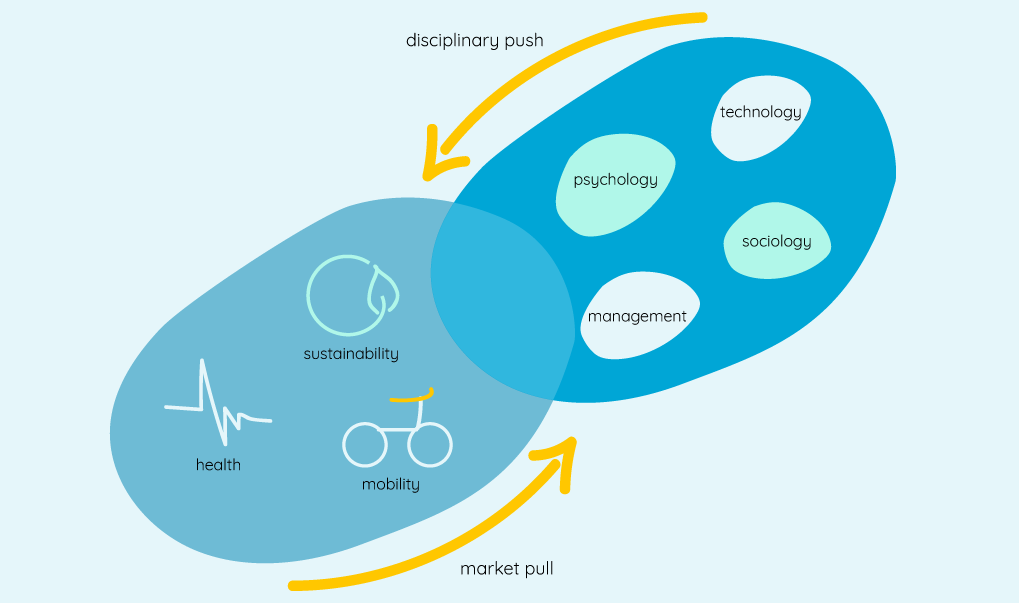
-
This year, during the first days of the semester (Manage your Master days), we had a Research Day. For me, it was enriching to get to know the research possibilities we have in the faculty. For this reason, I decided to interview Professor Pieter Jan Stappers, director of Research at IDE, to share with you the options we have at TU Delft. Here is a summary of what he shared with me:
During the research day, you mentioned that TU Delft is the largest design research institute. In which sense it is the largest?
“We have 100 design researchers doing research that particularly supports design or creates new ways of doing design. Other leading design schools in the world, have 20 or 60 students. Also, at the faculty of IDE we have 120 PhD students who do research, so if you are looking for a particular piece of expertise we have a lot. And I hear often from visiting researchers that sometimes come for an exchange; "Oh my God! for every topic you have an expert. When I go back to my own school we have six researchers." They cannot carry all the expertise. So, I think that is unique about Delft. We have so many different approaches, many different ways of working.”You also mentioned that the main themes of the faculty are health, sustainability, and mobility. Why did you decide to focus on those 3 themes?
“There are three societal challenges that we are focusing on, sustainability, health and mobility. Those are three issues that are considered urgent in the United Nations, Europe, and the Netherlands. We also have disciplinary perspectives. Those are the perspectives of the departments according to the backgrounds of the people (psychology, sociology, technology, etc.). We say designers bring together the multidisciplinary perspectives of people, technology and organizations; but health, sustainability and mobility are what people ask for. The challenges are the market pull and the other three are the disciplinary push with the knowledge from different areas. The pull is what society needs. (Figure 1)”.What do students need to do or who do they need to approach in case they want to know more?
In the master program, there are plenty of opportunities to find and discover people with research expertise. Number one, gossip; talk to other students. Probably they have met someone in a course and they know about a specific topic. Of course, there is the website (IDE Research) and the advertisements that we have on the wall. Also, one of the places where you can find some enthusiastic group of researchers is in the Delft Design Labs. I would suggest students to take a look at the opportunities that are already there in the courses. Many of the projects have research components and have opportunities to get in contact with researchers and experts who know a lot of things that might be a connection for them.I hope this article gives you an overview of the research possibilities in the faculty. If you are willing to learn more about design research, TU Delft is the right place for you!
Experiential Learning
Regina Morán, December 2018
The Faculty of Industrial Design Engineering is formed by students all over the world. We all come from different backgrounds and the way in which we were taught at our previous university might be different from the way of teaching at TU Delft. Here at the university, you will learn by experiencing and by putting your knowledge into practice. It is your decision how involved you want to get in every project. I am positive that in the past months at TU Delft I have been able to learn more than I could have imagined.
-
The students at the IDE (Industrial Design Engineering) faculty come from different backgrounds. A high number studied their bachelor in Delft, but there are other ones who studied in Eindhoven or other cities in the Netherlands. Or as it is my case, I traveled all the way from Mexico to come to study in Delft. I have classmates from Indonesia, Colombia, India, Denmark, Greece, and many other countries. Currently, 38% of the students in the MSc programmes are international. If you are curious to check the nationalities in the faculty from previous years, you can check the Student Population in TU Delft.
So, why is it relevant that we all have different backgrounds? I think that the way of learning and the way we have been taught in our previous university might be different from the way of teaching at TU Delft. How I call the way of teaching in the faculty is “Experiential learning”, you need to put all your knowledge into practice and experience it. You will have an assigned project and you will have some lectures that will help you prepare for the case, but you won't get a guide for how to do things. You need to try, to dare, and to suggest innovative solutions. During my first two quarters, I have already worked in projects for important companies such as Vanderlande and KLM; and it has been very enriching.
To help you a bit with your first projects, I have some tips for you. Whenever you go to a lecture you need to be ready, meaning that you should read the Lecture Manual on advanced, and probably there will be a paper to read before the lecture (check Brightspace; ask a friend if you don't know how to use it). Professors provide the material that you need, like slides, papers, books, and references. Make the best use of those documents, they will help you as tips or guidelines for your projects. You will have constant sessions with your coaches; be prepared for every session, write down your main concerns, they are always willing to help. A coach suggested us, that we should always choose three main questions to guide the conversation. In case you need extra help, you can ask them for extra coaching sessions. Also, learn from your classmates, we organized some sessions with other teams to share what everyone had been doing, and it was useful to see different approaches to the same problem. Working in teams is also very common in the faculty (Picture 1), so if you want to know more about it you can read the story about <link io studeren masteropleidingen msc-design-for-interaction experiences study-activities>Studying in a Dutch environment.
What I can tell you about the way of teaching at TU Delft is that it is very different from what I was used to, back at home. Despite the differences, I am positive that in the past months I have been able to learn more than I could have imagined. It is just that by putting your knowledge into practice you personally experience each stage of your project, and experience is not a thing that books can teach you. I am also impressed by how much do the coaches know, so I am trying to read all the papers that they suggest and dive a bit more into the topics I am interested in. A good thing about studying a master at TU Delft is that you can shape it the way you want and focus on the topics you like the most. So my suggestion would be, enjoy and get ready to learn as much as you want!
